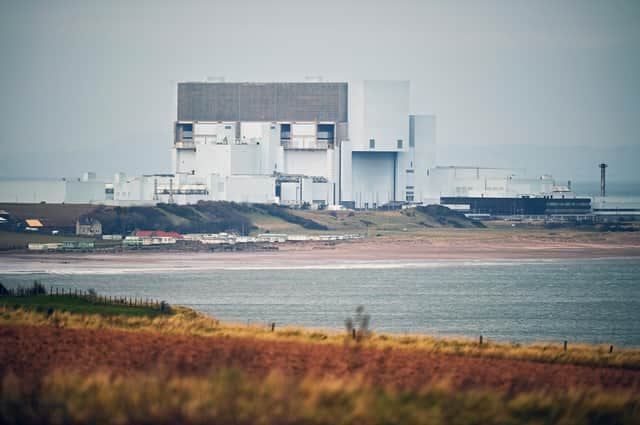Why Scottish Labour’s drift towards nuclear power is a tragic mistake – Dr Richard Dixon


Nuclear is slow to build, eye-wateringly expensive and dangerous. There is still no agreed solution for nuclear waste, which will need monitoring for many thousands of years. It is neither a solution to short-term energy needs nor to the climate crisis.
The UK Tory conference was spooked by the looming energy crisis sparked by our over-reliance on fossil fuels. The Times published a story on the eve of the conference saying that the Prime Minister was going to pledge that all our electricity would come from renewables by 2035.
Advertisement
Hide AdAdvertisement
Hide AdThis was widely picked up by other media but Boris Johnson didn’t actually say this in his conference speech and it later became clear that the commitment was for nuclear and renewables, not just renewables. A boost in renewables is very welcome, but more focus on nuclear is a huge mistake, and one which will actually slow down the transition to renewables.
The UK Labour Party conference was equally depressing on this front. A preview of what might be to come was when Brian Wilson, former Ayrshire MP and former UK Energy Minister, was announced as the chair of the Scottish Energy Transition Commission. The commission itself, Scottish Labour’s plan to keep the pressure up on the Scottish government’s official Just Transition Commission, should be welcome but giving it to the former ‘Minister for Hunterston Nuclear Power Station’ will immediately devalue it.
But worse came when Scottish Labour’s leader Anas Sarwar was quoted saying he supports a “diverse energy supply” – the standard union code for more nuclear – and thinks “nuclear is a key part of that and it’s something that I think we should fundamentally explore”.
For many years the Scottish Conservative manifesto for every election said we should have two new nuclear power stations in Scotland. It became a running joke because they knew it was never going to happen and they quietly dropped any mention of nuclear a couple of elections ago.
The tragedy of Labour finding a new enthusiasm for the ultimate unsustainable form of energy is that it was a Labour First Minister who put a stop to the nuclear industry’s ambitions in Scotland.
Jack McConnell, despite massive pressure from Tony Blair’s government, said in 2005 that Scotland would use planning powers to block any proposals for new reactors in Scotland unless there was an answer to the question of permanent storage of radioactive waste, something that is no closer today than it was then.
Had Jack McConnell not taken that stance Scotland could have had its own farce like that of the attempts to build new reactors at Hinkley Point in Somerset, now promised to be running in 2027, a decade after the original plan, at an ever-rising cost currently running at £23bn, more than ten times what Tony Blair told us nuclear stations would cost. Instead we have got on with a massive expansion of renewable energy.
Scottish Labour’s drift into being pro-nuclear will please no-one but the GMB union and Brian Wilson. It is a betrayal of one of their greatest achievements in government in Scotland.
Advertisement
Hide AdAdvertisement
Hide AdDr Richard Dixon is director of Friends of the Earth Scotland
A message from the Editor:
Thank you for reading this article. We're more reliant on your support than ever as the shift in consumer habits brought about by coronavirus impacts our advertisers.
If you haven't already, please consider supporting our trusted, fact-checked journalism by taking out a digital subscription.
Comments
Want to join the conversation? Please or to comment on this article.
